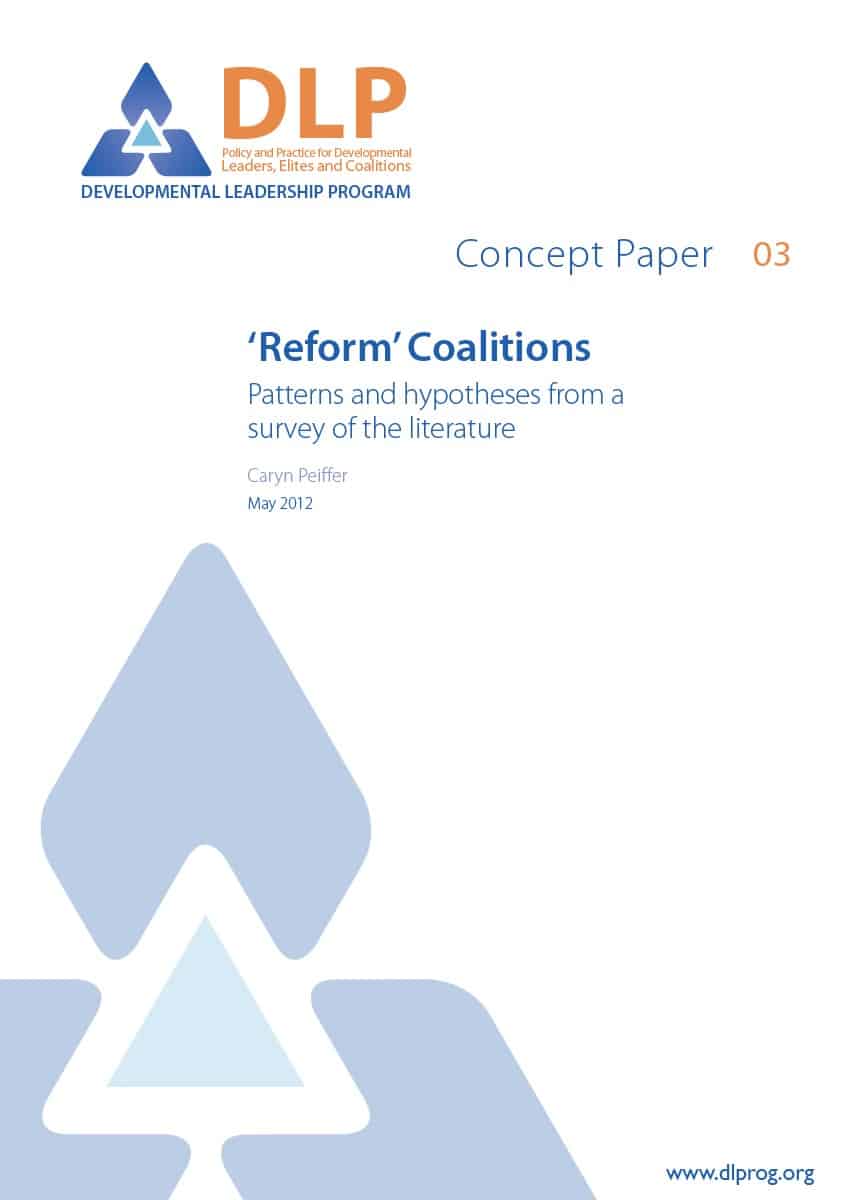Reform coalitions – coalitions that include both state and business actors working for policy and institutional reforms – are frequently cited as being important components in successful and sustained growth outcomes. But what do we know about the inner politics that drive these potentially important coalitions? When, and under what circumstances, do they arise? Who initiates them? How long do they last? Do successful reform (or ‘growth’) coalitions share similar characteristics with other kinds of coalition in the politics of development? And what can donors do facilitate their formation? This paper reports patterns learned from a review of literatures that can offer relevant theoretical background and case-studies of reform coalitions, so as to synthesize some preliminary answers to these and other relevant questions. It is hoped that the generalizations suggested here will offer lessons for donors as and when they consider whether and how to encourage, broker or facilitate the emergence of local and locally-owned reform coalitions. Finally, this review identifies some weaknesses and gaps in the existing scholarship on reform coalitions, and suggests new avenues of inquiry for future research.
Research
Themes
We are an international research initiative that explores how leadership, power and political processes drive or block successful development










